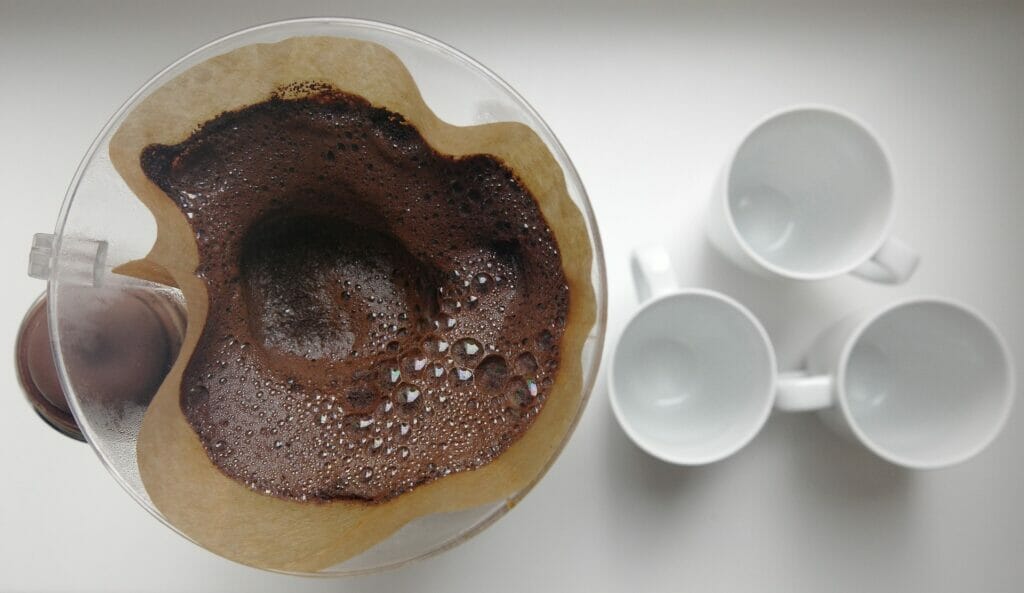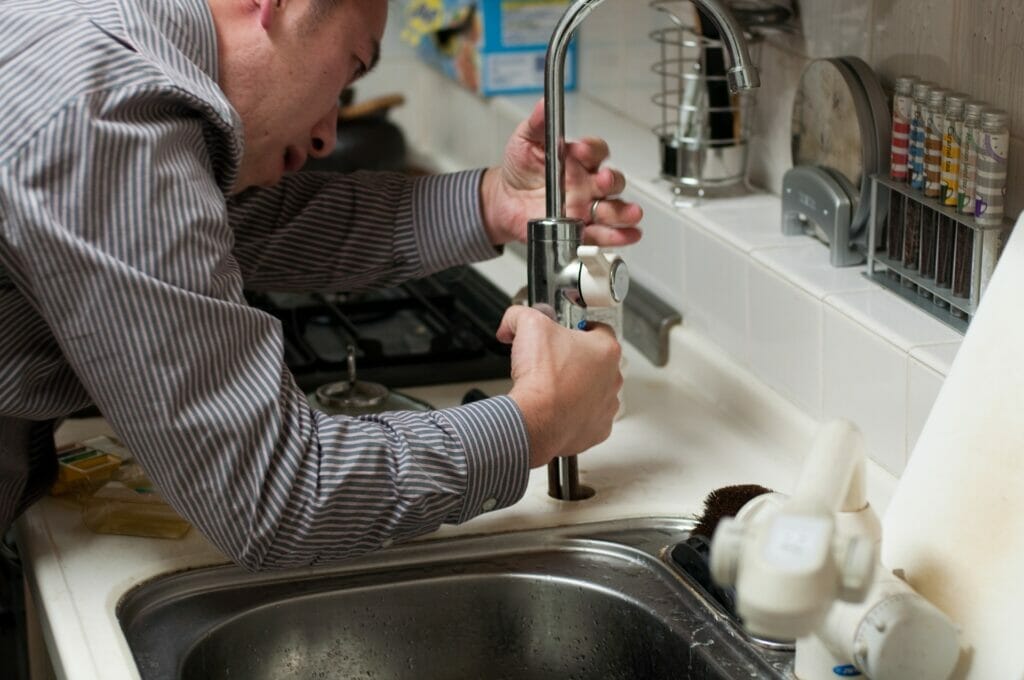Are Coffee Grounds Bad For Septic System?
Coffee grounds have been neglected when we talk about the proper care and maintenance of septic systems, but we should definitely pay attention to them. Flushing coffee grounds down the drain may be convenient, but it is bad for your septic system in many ways.
Coffee grounds can clog pipes and strainers, preventing water from moving through the system properly. They encourage bacteria growth, which can take away from the necessary tank balance and cause odors to escape into your home. Lastly, the oils and fats found in coffee grounds can damage important elements in your septic system’s design.
Why Should You Never Flush Coffee Grounds Down The Toilet?
You shouldn’t flush coffee grounds down the toilet due to the following reasons:
- For starters, coffee grounds can cause clogs in your pipes. If too many accumulate near a single drain, it could lead to a huge pipe problem for you down the road.
- Coffee grounds can also adversely affect your septic system’s bacteria in its tank and leading/receiving drains.
- The high acidity from the caffeine in these grounds could simplify your septic system’s balance and make things more difficult for it over time.
- Finally, coffee grounds are just plain bad for nature: what goes into our toilets eventually winds up in rivers and lakes.
Therefore, when it comes to disposing of used or old coffee grounds, dump them into biodegradable bags outside instead or use them as compost.

Do Coffee Grounds Increase The Solids In Your Tank?
The answer is yes. In soil, coffee grounds can take as long as three months to break down, but they can take even longer in your septic system. If you’re adding grounds on a daily basis, it won’t be long before the solids start to pile up.
The bacteria in the system will have a hard time keeping up, and eventually, there will be too much for them to handle. This could lead to numerous issues with your system, such as sewage backing up into your home or overflowing into the drain field.

It is essential to recognize that only septic-safe items should be flushed in a septic tank such as human waste and septic-safe toilet paper designed for this purpose. Regularly pumping out the tank is necessary to prevent system failure due to added solids, such as feminine hygiene products, coffee grounds, and “flushable” wipes.
Coffee Grounds Can Clog Plumbing And Septic Systems
Coffee grounds can be a real problem for plumbing and septic systems. Anytime you wash solids down the drain, you run the risk of clogging your pipes somewhere along the way.
But coffee grounds are particularly problematic due to their tendency to clump together and stick in pipe bends. Occasional rinsing won’t cause too much harm, but regularly rinsing the grounds down the drain can easily lead to a major blockage.
The same is true when it comes to your septic tank. Coffee grounds can build up at the intake baffle and potentially lead to sewage backup into your home. This is why it’s best to avoid putting any coffee grounds down your pipes altogether, especially if you have a septic system.
Coffee Grounds Can Cause Ph Imbalances In Your System
If you’re wondering whether coffee grounds are bad for your septic system, the answer is yes. When used coffee grounds enter your septic tank, they don’t just increase the layer of solids or cause plumbing clogs

They also affect the pH levels in your septic tank. This can cause many types of issues as it affects the efficiency of the bacteria responsible for breaking down partials and effluents within the tank.
Normally, these bacteria live in a neutral pH level between 6.5 and 7.5, but coffee has an acidic pH level ranging from 4.85 to 5.1 which means that flushing coffee grounds in the septic tank not only add solids to the tank but it also lowers your bacteria’s performance when it comes to breaking down those solids.
Why Is Maintaining A Healthy Septic Tank Important?
Keeping an up-to-date maintenance plan on your septic tank will keep it running smoothly, efficiently, and safely. By properly caring for your septic tank you can ensure that it works correctly and provides a safe and ideal environment for your family for years to come. The importance of routine septic tank maintenance cannot be overstated, which includes:
1. Property Value
Maintaining a healthy septic tank is important for more than sanitation; it helps protect the value of your property. When you go to sell your house, any issues with the septic tank discovered in an inspection could indicate that it has not been taken care of correctly and risks losing you a potential sale.
To ensure your property and home retain their value, it pays to take good care of your septic tank. Regular maintenance and upkeep will help keep things running properly and ensure there are no surprises during an inspection that can harm your potential sale.
2. Good Health
Having a healthy septic tank is important for your overall health, as it helps to keep wastewater adequately treated so that it doesn’t contaminate your well, yard, or surface water.

Improper septic tank maintenance and care, the septic tank could become full of sludge and cause backwash to flow into your house, exposing you to potentially dangerous bacteria.
3. Protects Your Environment
Having a healthy septic tank is critical for protecting our environment. Every day, billions of gallons of wastewater are discharged below the surface. If this wastewater is not treated carefully or not treated at all, it can be a serious threat to the natural environment we live in.
Polluted groundwater caused by untreated hazardous household wastewater can easily contaminate acidic soil and water sources, such as streams, lakes, rivers, and more.
4. Financial Savings
Maintaining a healthy septic tank can help you to save money in the long run. Instead of having to replace your septic tank, regular cleanings by your service technician will ensure that it stays in good condition.
Your technician can produce a detailed septic tank inspection report for any signs of structural damage such as leaks and cracks, helping to prevent expensive septic tank repairs later on.
Dos And Don’ts Of Septic Tanks
These are the guidelines to follow for your septic tank.
1. Do Not Discharge Hazardous Waste Into The System.
When it comes to maintaining a healthy septic tank system, the number one rule is to never discharge hazardous waste into the tank. This includes but is not limited to gasoline, paint thinners, paint, and motor oil. Discharging any of these substances will be a deadly blow to your septic system and can cause severe damage if not taken care of immediately.
2. Do Expand Your Septic System As Necessary.
It’s important to keep your septic system in top condition, and if you’re planning an addition to your home that would increase the floor area by more than 15 percent, add additional plumbing fixtures, or add bedrooms, then it may be necessary to enlarge your existing septic system.
3. Do Keep The Number Of Solids To A Minimum.
When it comes to septic tanks, one of the most important dos and don’ts is to keep the number of solids that are flushed down your toilet to the absolute minimum. That means no cigarette butts, earplugs, cat litter, tampons, ground coffee beans, disposable diapers, dental floss, or sanitary napkins should be put in a commode connected to a piece septic tank.
4. Do Not Forget To Install An Effluent Filter.
For those with a septic tank, do not forget to install an effluent filter. This simple installation can go a long way in extending the lifespan of your system by decreasing the number of solids that are able to leave your tank and enter into other areas of your wastewater system.

An effluent filter will be an important addition to any septic tank set up, helping ensure that it continues working properly for years to come without any problems or issues. Installing one is easy, so don’t forget about this essential step.
5. Do Not Place Non-biodegradable Materials In Your Septic System.
Using a septic system has its advantages, but it’s important to be aware of the dos and don’ts. One of the most important things to remember is that you should never put anything into your coffee grounds’ septic tank system that isn’t biodegradable.
This includes items such as sanitary napkins, plastics, cigarette butts, tampons, paper towels, and garbage disposals. These types of materials can clog the drainage field, causing serious damage to your septic system and leading to costly repairs.
